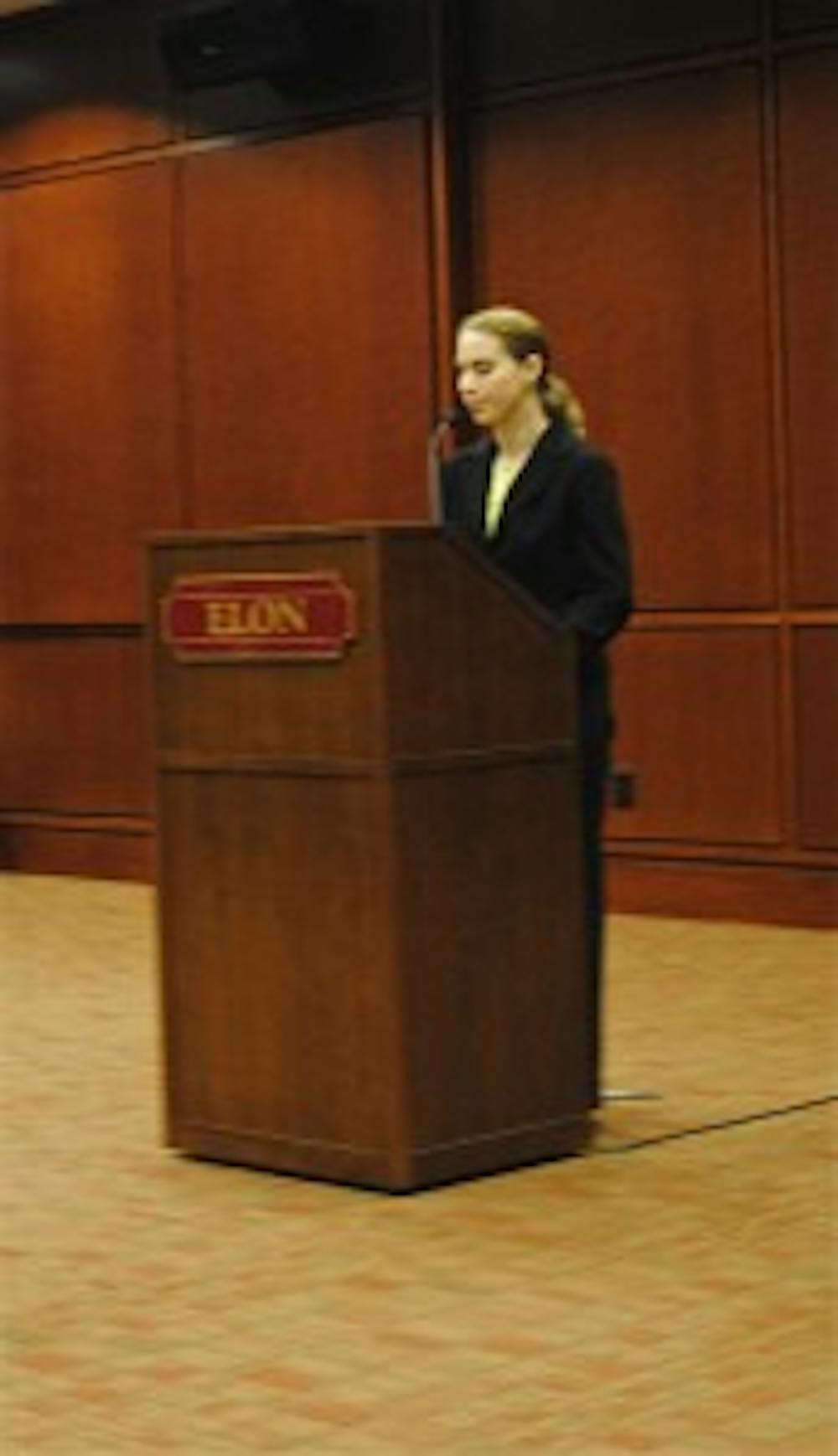A fight for social justice revolved around a tomato.
Tomato farms in Immokalee, Fla. and throughout the state are grounds for modern day slavery and human trafficking, said Rabbi Jill Jacobs, executive director of Rabbis for Human Rights-North America.
Jacobs spoke about the plight of tomato pickers, the road to developing ethical agricultural practices and how Jewish tradition directed her responsibility toward others in a lecture titled "Taking Judaism Public: What Traditional Wisdom Can Teach America" at Elon University Oct. 26.
"This year celebrates 150 years since the Emancipation Proclamation, but 150 years later there are still slaves here," Jacobs said.
Jacobs described the oppressive working conditions and the interminable poverty the pickers inherit.
The tomato growers typically monitor the pickers and pay them per pound of tomatoes rather than according to an hourly wage. As a result, pickers would need to pick 2.5 tons of tomatoes to make minimum wage, according to Jacobs.
Dangerous pesticides and sexual harassment are permanent conditions as well, she said.
"Sexual harassment is so common, I thought it was part of the job," Jacobs said, repeating the words a tomato picker had shared with her.
In order to break the cycle, a group of pickers organized the Coalition of Immokalee Workers and requested the growers sign a contract promising an improved working environment. When the growers refused, rabbis and businesses stepped in.
Initiatives informed the community of the modern day slavery. Boycotts on college campuses motivated Taco Bell to refuse to buy tomatoes produced under unethical working conditions. Whole Foods and Trader Joe's, under pressure from local rabbis and the Jewish community, later joined the boycott as well.
According to Jacobs, Jewish tradition informed the rabbis' decision to fight against modern slavery.
"History is obligatory," Jacobs said, referencing the Hebrews' exodus from Egypt.
The Jewish Biblical history teaches the community to defeat oppression because their ancestors experienced slavery in Egypt. The past generates obligation to those who suffer, she said.
"History is not a historical experience, but dictates laws in the present," Jacobs said.
Although Jewish tradition does not argue against capitalism and class distinction, each person should still demonstrate responsibility for each other.
"People can earn as much money as they want, but there are specific limits on how they can treat the people who help them make that money," Jacobs said.
According to the revered Jewish philosopher, Nahmanides, the Torah law says an employer must not keep his workers' wages overnight in the event they need the money to survive and provide for their family.
The idea of tzedakah, which translates to "gifts to the poor," also influences Jacobs' views concerning contemporary and moral issues, she said. Tzedakah, derived from the Hebrew word for justice, requires each individual gives at least 10 percent of his earnings to the poor.
The practice demonstrates that God owns everything, and it is the people's responsibility to redistribute it to those less fortunate. The tradition relates to how we think about companies, she said.
While some employers argue they do not earn enough profit to increase their employees' wages, Jacobs explains the employees' work contributed to the functionality of the business.
"You got that money because other people worked for it, so it is your responsibility to find out how best to distribute it," she said.
While religion frequently weaves its way into political discussion, Jacobs recognizes positive aspects of including religion in public debates.
"Religions have something to say about our moral issues today," she said.


